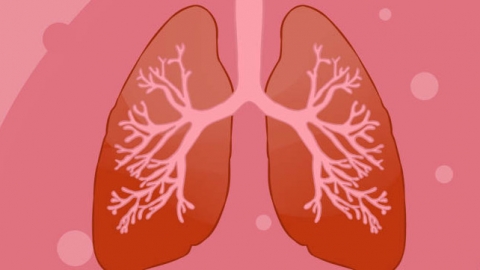What is Primary Pulmonary Fungal Infection?
Under normal circumstances, the main causes of primary pulmonary fungal infections include weakened respiratory defense function, low immunity, chronic obstructive pulmonary disease (COPD), lung abscesses, and pulmonary tuberculosis. If discomfort symptoms occur, timely medical consultation and treatment at a regular hospital are recommended. Detailed analysis is as follows:
1. Weakened Respiratory Defense Function
The mucus secreted by respiratory mucosa and ciliary movement form a defensive barrier. If this barrier is compromised, fungi can easily invade the lungs and cause infection. Maintaining moist respiratory passages, avoiding smoking and inhalation of irritant gases, and reducing respiratory tract injury are essential in daily life.
2. Low Immunity
Long-term malnutrition, excessive fatigue, and similar conditions can reduce immunity, making it difficult for the body to resist fungal invasion and increasing the risk of infection. A balanced diet rich in proteins and vitamins, regular sleep patterns, and moderate exercise are necessary to strengthen immunity.

3. Chronic Obstructive Pulmonary Disease (COPD)
This disease causes structural damage to the lungs and impaired ventilation, creating favorable conditions for fungal growth. Pulmonary function can be improved, and the risk of infection reduced, by using medications such as budesonide-formoterol powder inhaler, tiotropium bromide powder inhaler, and salbutamol aerosol under a doctor's guidance.
4. Lung Abscess
The pus cavity formed by a lung abscess provides a favorable environment for fungal proliferation, leading to primary pulmonary fungal infection. In addition to antifungal medications such as fluconazole capsules, itraconazole capsules, and voriconazole tablets, lung abscess puncture and drainage may be necessary to remove pus when indicated.
5. Pulmonary Tuberculosis
Tuberculosis damages lung tissue and lowers local resistance, making secondary fungal infection more likely. Anti-tuberculosis medications such as isoniazid tablets, rifampicin capsules, and pyrazinamide tablets should be taken under medical supervision. In severe cases, surgical removal of the lesion may be required.
In daily life, attention should be paid to personal hygiene, and exposure to moldy environments should be avoided. Underlying pulmonary diseases should be actively treated. When using antibiotics or hormones long-term, pulmonary status should be monitored as directed by a physician to prevent fungal infections.




